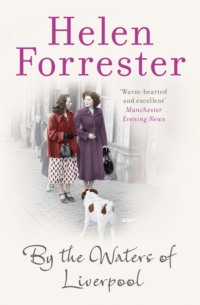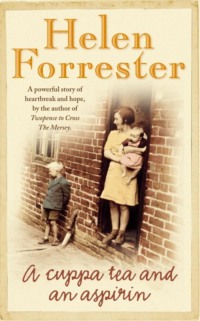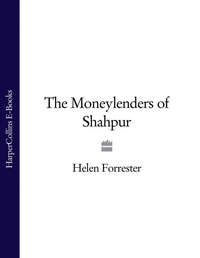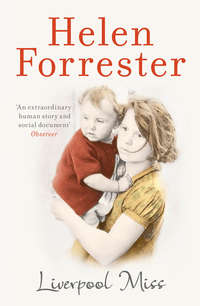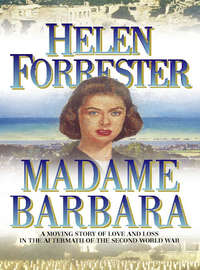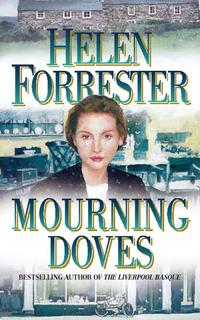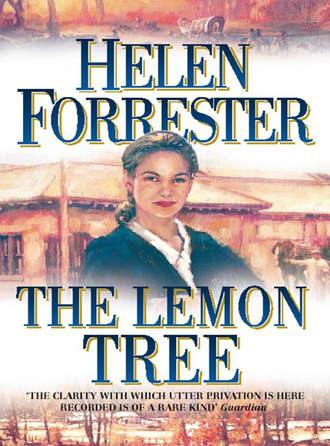
Полная версия
The Lemon Tree
‘You mean they would’ve paid him more?’
‘Yes.’
‘I wonder that he did not move.’
‘He and Mr James Al-Khoury were great friends. I believe they were together from the first establishment of the soapery. And there’s no doubt that he and Mr Benjamin get on very well.’
Wallace Helena murmured approbation.
They went into the Power House together, to meet Mr Ferguson, the Steam Engineer, a middle-aged man with a ruddy face and an air of great self-confidence and dignity. He was dressed in immaculate blue overalls. He was attentive and informative to his lady visitor, well aware that he belonged to a newly emerged class of employee able to cope with the mechanization of industry and was, therefore, a prized servant of the company. He was a trifle defensive with Mr Turner. Wallace Helena noticed this and wondered why. She had yet to discover the subtleties of class in British society; Mr Ferguson was exceedingly proud of his abilities, but he remained a working man; Mr Turner was also a highly trained man – but he was middle-class – a man of privilege as well as ability.
As she walked slowly round the works, she had noted carefully the reactions of her employees to herself and also reactions between them. After watching for years the body language of the Indians who passed over her land, to judge whether they were hostile or friendly, she had learned to observe the slightest shrug, the curve of a lip, the smallest move of hip or hand. She had quickly picked up the general nervousness of the men to whom she was introduced and she had felt sorry for them. In return, she had tried to show herself as a confident, capable person, and she felt that some of them had liked her.
Only Mr Benjamin Al-Khoury had failed to turn up.
According to Mr Bobsworth, the bookkeeper and forwarding clerk, he was in Manchester and would return in a few days’ time. ‘Life has been very hectic for Mr Benjamin since Mr James passed away, him being Assistant Manager to Mr James, like. Everything fell on him.’ Mr Bobsworth heaved a sigh deep enough to make every inch of his five feet quiver.
She had nodded, and remarked that Uncle James’s death must have been a shock to everyone.
‘Indeed, yes, Miss Harding.’ His eyes blinked behind his small, gold-rimmed spectacles, and then he said, ‘I should tell you, Ma’am, that Mr Benjamin asked me to convey his regrets to you at not being here today; he’s investigating the unexpected refusal of a customer to renew his contract with us – in the cotton trade, they are.’
‘I see,’ she had replied noncommittally, and Mr Bobsworth had begun to worry that young Benji had offended the lady deeply by his absence.
Now, seated in her stuffy bedroom, she made a face as she recalled the conversation.
If, as she suspected, Mr Benjamin Al-Khoury was her illegitimate cousin, a product of Uncle James’s love affair with an English woman, about which she had heard vaguely as a young girl when she was living in Chicago, he was probably suffering from an acute bout of jealousy because she had inherited his father’s business.
She was fairly sure that, if he had been a legitimate child, he could have claimed, in law, at least a part of his father’s Estate, no matter what his parent’s Will had said about leaving all his property to his brother, Charles, her own father. Mr Benson had, however, assured her that there were no other claimants to the Estate, and she presumed that Mr Benson knew his law.
It was possible, of course, that Benjamin Al-Khoury was some very distant relative, whose parents had also managed to survive the massacre of Christians in 1860.
With a wry smile at the foibles of his own youth, Mr Benson had explained to her that, when he was first setting up his law practice and was badly in need of every penny he could earn, her Uncle James had consulted him about the exact meaning of a contract he was about to sign. Afterwards, in pursuit of a small additional fee, he had inquired if Uncle James had a Will and, since he had not, he had been persuaded to make one.
At that time, Uncle James had had no one else to whom to leave his modest possessions, so, at the age of twenty-three, he had left everything to his brother, Charles, in Chicago. And now, as the residual legatee of her father’s and her mother’s own Wills, Wallace Helena found herself inheriting a well-run soap manufactory.
‘Why didn’t Uncle James make a more recent Will?’ she had asked Mr Benson.
‘Dear lady, I do not know. I did mention the matter to him once or twice; but he was a tremendously busy man – and, like all of us, he did not anticipate dying at forty-nine.’ He had smiled indulgently at her. ‘Do you have a Will, Miss Harding?’
‘No, I don’t,’ she had admitted, a note of surprise in her voice; she had never thought of dying herself, despite the hazards she faced daily in her life as a settler. Mr Benson’s question had made her suddenly aware of the problems Joe Black might face if, indeed, she did die. She smiled a little impishly at the lawyer, and then said gravely, ‘I’ll attend to it.’
She reverted to the matter of her uncle’s Will. ‘Perhaps Uncle James really didn’t have anyone else to leave his money to, except Papa – or me?’ In view of her surmises about Benjamin Al-Khoury, the question was a loaded one, and she watched carefully for her lawyer’s reaction.
Mr Benson was not to be drawn, however, and he answered her noncommittally, ‘Possibly not.’ She was left to puzzle about her Uncle James’s private life.
Now, as she took up her pen and dipped it into the ink, preparatory to continuing her letter to Joe Black, she decided philosophically that she would deal with Mr Benjamin whenever he decided to turn up.
She wrote in English, a language she had learned in Chicago and from her stepfather, Tom Harding: ‘Dear Joe, how I wish you were with me! I need your brains – and I need your love to sustain me.’
Should she tell this man, whom she loved with a passion and depth which sometimes frightened her, how nervous she felt?
No. He would only worry, and worry never solved anything.
With deliberate cheerfulness, she continued, ‘Thanks to Messrs Cunard, I arrived safely in Liverpool yesterday morning. At Montreal, Mr Nasrullah, Grandpapa Al-Khoury’s friend – a very old man – saw me and my baggage safely transferred to the ship, as we arranged. He was worried that I was travelling steerage, alone; but everyone was very friendly to me, though it was not very comfortable. I gave Mr Nasrullah a hasty note to post to you, and I hope you received it safely. Now that the railway line has reached Calgary, it should make a vast difference to the speed with which we can send and receive letters, even from as far north as Edmonton. (I wonder if Edmonton and St Albert will ever be served by a railway line?)
‘My dearest, it was good of you to accompany me in the stage all the way down to Calgary, to see me onto the train. I shall never forget the wonderful night we spent in that dreadfully noisy hotel! How I miss you now!
‘When the train moved out and your dear figure receded into the distance, I wished I had never set out on such a wild adventure – and yet the English lawyers sounded so eager to sell Uncle’s business that I smelled a rat; as I said to you, the works could be more valuable than they would have me know. Could the lawyers make a gain by selling to someone with whom they had made a private agreement?
‘Today, I did a fairly thorough inspection of the plant. I have not yet seen the company’s books, nor do I know enough to say how well it is doing. I am, however, uneasy that Mr Benjamin Al-Khoury, the Assistant Manager, was not here to greet me; I felt snubbed!
‘He was left nothing in Uncle James’s Will, and I suspect that he is his illegitimate son. No matter which side of the blanket he was born on, however, I am excited at the thought that I may actually have a blood relative. You know how shorn I feel because I have no family – and, without your support, I am sure I would have given up on life long ago – bless you, my dearest one.
‘I must bear in mind, though, that this man may be very jealous that I, and not he, now own the Lady Lavender.
‘Mr Benson, the lawyer, has found me two rooms near the works, in the house of Mrs Hughes, a widow – the address is at the top of this letter. The rooms are clean and her cooking is good, though I am feeling the sudden change in diet.
‘I wish you were with me. The city is very lively. I confess that I doubt if you would enjoy the noise and confusion – or the heavy smoke in the air – near the works, the filth of it is overwhelming.
‘The products of the soapery put our home-made efforts to shame. They are sweet-smelling tablets, light brown or blue-grey in colour. To scent them, they use lavender oil, caraway or cinnamon. They have, also, a fuller’s earth soap for very delicate skins. They do make plain bars of soap for laundry and for the cotton industry, and these do not smell much better than the ones we make at home!
‘The lavender oil is produced by a lady in the south of England. She also makes a perfume of it by diluting it with spirits of wine and bottling it. We act as her northern distributor for these little bottles of scent and they are sold side-by-side with our lavender soap. It is very pleasant to dab a little on my wrist and sniff it.
‘The whole operation is so interesting that I am already questioning whether I should sell it. If it is financially sound, I could, perhaps, find a knowledgeable man to run it.’
She stopped writing, and chewed the end of her pen. She knew already what she would like to do, she considered longingly. She had been born and spent her childhood in a city, and she would like to settle in Liverpool, rain and dirty air notwithstanding, and run the business herself. After all, she ruminated, she knew the centre of Liverpool quite well; she and her parents, as refugees, had spent some weeks in it, waiting for an immigrant ship to the United States – and she remembered with pleasure the pool crowded with sailing vessels which had given Liverpool its name.
‘With all that Papa taught me, I could learn to manage the Lady Lavender – it’s obviously got some good employees,’ she assured herself. ‘I suspect that before I was ten I’d learned more than some of these fat Englishmen know. I don’t know the detail of their work, but I can organize people – I can sell. But what on earth would Joe think of it – of coming to a city?’
She considered the question seriously; he wasn’t getting any younger; it was possible that he might enjoy the sheer comfort of city life after the remorseless struggle they faced on their homestead.
Wishful thinking! she chided herself, and slowly dipped her pen into the ink.
‘If we drew income from the soap works,’ she continued, ‘we could accumulate more riverside land, as it becomes available, and increase our grain crops – the minute a railway crosses the North Saskatchewan and reaches Edmonton, eastern markets would be opened up to us – and we might even have money to spend!’
She paused in her writing and wondered how many more terrible winters they would have to endure before they made enough to, perhaps, move south to a better climate. And it’s not only winter, she considered sadly, it’s clouds of merciless mosquitoes, forest fires, unsettled Indians and Metis, floods – and hunger – gnawing hunger – and the endless, endless physical work.
She bit her lips, and continued to write, asking him how the crops were doing. She hoped the cougars were not being a nuisance again this year – that was a huge pair he had shot last year.
Cougars? Bobcats? Wolves? They were a curse when one had livestock. She grinned suddenly at the idea of a cougar sniffing its way comfortably into the yard of the soap works, and then went on to give him a different piece of news.
‘Yesterday, in the street, I heard Arabic being spoken, and, frankly, I was surprised that I still understood it – though it is my childhood tongue. Three men definitely from the East, probably seamen, were talking together at a street corner; they had lost their way, but being a stranger myself to this end of the city, I could not help them so I passed on. While I am here, I hope to get some accurate news of the present situation in the Lebanon.’
She put down her pen and slowly stretched herself. It had been good to hear the language of her family. She would give a great deal to walk the ancient streets of Beirut or sit quietly in her parents’ courtyard, if it still existed, and listen to cheerful Arab voices.
But there were no familiar voices left, she reminded herself; she would have to sit by herself under the old lemon tree.
She shivered, and a sense of awful aloneness engulfed her, the ghastly loneliness of a sole survivor, with no one else alive to understand completely the horrors she had seen. For a moment she did not hear the horses’ hooves in the street outside or the rain on the window or feel the chill of her room; she was lost in a misty ebb of consciousness, through which she heard the roar of a mob out of control and the screams of the dying.
She sat perfectly still in her stiff little chair, her white face covered with perspiration, until the moment passed. Then she got up and stumbled to the washstand, to pick up a damp face flannel and press it to her temples.
Chapter Three
Feeling a little better after the damp coldness of wiping her face with a flannel, Wallace Helena sat down on the edge of the bed and slowly unlaced her neat black boots. She hauled them off and thankfully flexed her toes. On the homestead she wore soft Indian moccasins and gaiters, for which she traded barley with a Cree woman each year. She kept her precious boots for formal occasions, like visiting Mr Ross’s hotel in the settlement by Fort Edmonton. In the hotel, she was sometimes able to contact small groups of travellers in need of supplies, like flour, meat or, perhaps, a horse; they were also occasionally glad to buy well-salted butter or sour cream. The visitors were usually surveyors and miners passing through, but increasingly there were well-to-do British hunters, who had simply come to enjoy a new wilderness and hunt big game. Most of them dealt with the Hudson’s Bay Company or one or two other suppliers, who could provide coffee, sugar and salt, tobacco, alcohol and other imports. Wallace Helena, however, kept her prices low and she could usually find someone with little money only too thankful to buy cheaply. They were surprised, and sometimes amused, to be approached by a woman, particularly one who did not fit the usual mould. With her tall, spare figure and her long, mannish stride, her carefully calculated prices and her ability to strike a bargain, she was a well-known local character round Fort Edmonton, particularly disliked by the other suppliers.
Now, she longed to rest on the feather bed, but she felt she must finish her letter to Joe; she had promised to write frequently; and, even with the new railway, a letter would take some time to reach him. She made herself return to the tiny desk in the window.
After the quietness of the bush, it felt strange to be back in the hurly-burly of a city and be immediately plunged into the complexities of a factory, the first modern one that she had ever seen; it was stranger still to realize that, as soon as her uncle’s Will had been probated, she would actually own the soap works.
Pen in hand, she stared thoughtfully out of the bedroom window. Already, she had casually remarked to Mr Turner, the chemist, that it might be cheaper for the Lady Lavender to buy seed and themselves press the oil they used, rather than import it.
Mr Turner had replied superciliously that to make it pay, they would probably have to find a market for the residual solids.
It was probably the most sensible remark he had made to her that day, but she had snapped him up promptly. ‘The solids can be used for winter food for steers. Don’t your farmers know that?’
Mr Turner had gulped and failed to reply immediately; he knew little about farming. What did women know about cattle?
When he had recovered himself, he pointed out that a new venture like that would need capital. ‘Presses,’ he added vaguely, ‘and – er – men who understand farming, to sell the residue.’
‘Right.’ She had stopped to take a small black notebook and pencil out of her reticule, and made a quick note. She might, she thought, cost it out in years to come, when she understood more about the business.
Playing at her father’s feet in his large silk warehouse in Beirut or cuddled by her mother’s side when the family was gathered together in the evening, she had absorbed a great deal of the discussions going on over her head. Amongst much else, she understood the importance of estimating cost and return – and the ever-present risks of undertaking something new. During her long tour of the soap works, she had felt, at times, as if her father were whispering to her, telling her what to look for, giving her quiet advice.
And then there was the glycerine, which, the chemist had informed her, was left over after the soap was made. He had mentioned that, when properly refined, it was a good base for salves for the skin and for certain medicines; he and Benjamin Al-Khoury were working on a scented lotion for chapped hands, to market alongside the lavender perfume and toilet soaps. At present, he had informed her, the glycerine was sold to explosives manufacturers.
Explosives were used for war, she ruminated, as she enclosed her letter to Joe in an envelope and licked the flap; and she had had enough threat of that round her farm near Fort Edmonton, when the Metis had risen in defence of their land rights. It was only last year that their leader, Louis Riel, had been hanged for rebellion.
Her mind wandered to the problems of her life as a settler. The rebellion had been very frightening; and yet, she considered uneasily, Louis Riel had had a rightful cause. His people were descendants of early European settlers and their Indian wives, and they had been dispossessed of their land further east by the rush of new immigrants from Europe. In despair, they had moved westward to squat on the undeveloped lands of the Hudson’s Bay Company. Unlike her stepfather, who had himself been a squatter on the Company’s holdings, many of them had not succeeded in establishing their right to remain on the land. She thought smugly that it was thanks to her stepfather’s and her own sagacity that she now owned the land she farmed.
A squatter’s legal rights were tenuous, she knew; she herself had once not hesitated to try to overset a Metis squatter’s right to a riverside homestead which she had coveted.
‘But at least I finished up by paying him for it,’ she had said defensively to one of the Oblate Fathers from St Albert, when he had dared to criticize her ruthless business methods. ‘It cost me all I had at the time,’ she had added, hatred in every inch of her. ‘I could have hounded him off – like the Hudson’s Bay tried to do to my stepfather.’
Her eyes, long, oriental, heavily fringed with thick black lashes, were half-closed and averted from him, as she had continued, ‘When I first came to Fort Edmonton, a young innocent girl, that man shouted obscenities after me, because I’m sallow-skinned and he thought I was a Chinese – a man’s plaything. And I would prefer not to repeat what he used to call my stockman, Joe Black. Why should I care about him, Father?’ She had given a dry little laugh, and had turned and left the discomfited priest standing in the middle of the spring mud of the Fort’s yard.
The priest had sighed. He had been warned by an older priest that this wilful, proud, strayed member of the Christian flock, a lone Maronite Christian survivor of the 1860 massacres in Lebanon, had endured a lot of sorrow. She was now in her late thirties, and, in her business affairs, she had the reputation of being as merciless as an Iroquois woman – and when he considered what Iroquois women had done to captured Jesuit priests in earlier times, a faint shudder went through his thin, bent frame, as if the devil had touched him on the shoulder.
Yet, as he trudged along the trail to his Mission in St Albert, he had to admit that during the Metis uprisings she had been one of the few to remain calm. She had prepared to defend her homestead with more common sense than other settlers, many of whom had panicked – even he and his fellow priests, who ministered to the Metis, had been very frightened.
‘Nobody has to worry about Wallace Harding or Joe Black,’ one of his parishioners in St Albert had assured him. ‘They’re the best shots in the district and she’s got that cabin well defended; the rebels’ll go for easier loot.’
Then, of course, there was Joe Black himself, the priest reflected; Joseph Black, the only negro in the district. Joe had a history, too.
According to Father Lacombe, who knew almost everything about everybody, he was the son of a Cree woman and a freed slave who had accompanied John Rowand on his exploration of the Bow River, further south.
He had been brought up in his maternal grandfather’s lodge and had then gone to work on one of the early ranches. In consequence, he had a wonderful way with horses – with any animals, if it came to that. Later, he had trapped for a time, following the animals northward, and had finally met up with Tom Harding, an American miner. The young priest had never met Tom Harding, but the story was well known; Tom had been a squatter on undeveloped Hudson’s Bay Company land a few miles east of Fort Edmonton.
Disregarding the splutters of rage from the Hudson’s Bay Factor at the Fort, who was rapidly becoming less and less able to enforce his company’s rights to the immense territory they were supposed to control, Tom Harding and Joe Black had, with sporadic aid from Joe’s Cree relatives and a couple of temporarily stranded miners, slowly opened up several square miles, much of it forest. Based on what he had observed in the United States, Tom Harding sowed grass and clover, as well as barley, oats and potatoes. It was backbreaking work and, in addition, they had had the difficult task of protecting their first few animals and hens, not only from predators but also from increasingly hungry parties of Indians.
Despite Joe’s abilities as a hunter and trapper, game was scarce and in the early years they were often hungry themselves. Each year, when the ferocious winter descended on them, they would ask themselves why they bothered and would become irritable with each other. But the first sound of water dripping from the snow-covered roof would raise their spirits, and they would begin to plan the coming year. The Hudson’s Bay Factor, aware of whispers from eastern Canada and from London about the Hudson’s Bay mandate being withdrawn, gave up on them and was thankful, occasionally, to buy or trade for some of their crops, to feed the increasing number of people living in and around the Fort.
The trust between the two men became absolute.
As the early winter cold bit into the priest’s own underfed body during his long walk back to the Mission, he secretly envied Joe Black’s physical strength. Over six feet tall, Joe was, and built to it, with wiry grey hair, teeth discoloured by tobacco, and big black eyes surrounded by innumerable wrinkles; those eyes, thought the priest, could be cold and watchful, like those of a cougar he had once seen; at other times they could dance with amusement, and his deep rumbling laugh would roll across the room. An old clerk at the Fort had told him that Joe had been a fine, handsome man until he had caught the smallpox. The dreadful disease had left its marks on his cheeks and forehead, the priest reflected with compassion, and probably on his character as well.
To the priest, Joe seemed quieter than his general reputation at the Fort would indicate. Men always said that he and Tom Harding were formidable in a fight, but it did not seem to the young priest that he ever tried to pick a quarrel.
He’s very astute – and he’s older now – perhaps that’s why, guessed the priest; he must be at least fifty. But whatever a hard life had done to him, he was alert and quick to grasp a concept; you never had to explain anything twice to the man. And his looks did not seem to bother Miss Harding, Tom’s stepdaughter; it was said that she slept with Joe every night.




